The Unified Foundational Ontology (UFO) was developed by consistently putting together a number of theories originating from areas such as Formal Ontology in philosophy, cognitive science, linguistics and philosophical logics. It comprises a number of micro-theories addressing fundamental conceptual modeling notions. The ontology is divided in three strata dealing with different aspects of reality, namely:
- UFO-A: An Ontology of Endurants dealing with aspects of structural conceptual modeling. It is organized as a Four-Category ontology comprising theories of Types and Taxonomic Structures connected to a theory of object identifiers (including a formal semantics in a Sortal Quantified Modal Logics), Part-Whole Relations, Particularized Intrinsic Properties, Attributes and Attribute Value Spaces (including a theory of Datatypes as Measure Structures), Particularized Relational Properties and Relations and Roles;
- UFO-B: An Ontology of Perdurants (Events, Processes) dealing with aspects such as Perdurant Mereology, Temporal Ordering of Perdurants, Object Participation in Perdurants, Causation, Change and the connection between Perdurans and Endurants via Dispositions;
- UFO-C: An Ontology of Intentional and Social Entities, which is constructed on top of UFO- A and UFO-B, and which addresses notions such as Beliefs, Desires, Intentions, Goals, Actions, Commitments and Claims, Social Roles and Social Particularized Relational Complexes (Social Relators), among others.
Over the years, UFO has been employed as a basis for analyzing, reengineering and integrating many modeling languages and standards in different domains (e.g., UML, TOGAF, ArchiMate, RM-ODP, TROPOS/i*, AORML, ARIS, BPMN, REA) as well as for the development of Core and Domain Ontologies in different areas (see applications). For instance, it has been successfully used to provide conceptual clarification in complex domains such as Services, Risk, Value, Trust, Economic Transactions, Economic Preferences, Money, Capabilities, Organizational Structures, Communities, Goals and Motivations, Constitutional Law, Business Processes, Discrete Event Simulation, Simulation for Land Covering and Use, Software Quality, Software Measurement, Foundations of Software Engineering, Software Requirements, among many others. Of all applications of UFO, one deserves special attention, namely, the use of UFO-A in the design of an ontology-driven conceptual modeling language, which later came to be known as OntoUML.
More recently, a lightweight implementation of UFO suitable for Semantic Web OWL 2 DL applications was published: gUFO.
Some Key References
- G. GUIZZARDI, Ontological Foundations for Structural Conceptual Models, {Universal Press}, 2005.
- G. GUIZZARDI, G. WAGNER, J. P. A. ALMEIDA, and R. S. S. GUIZZARDI, “Towards ontological foundations for conceptual modeling: The unified foundational ontology (UFO) story,” Applied Ontology (Online), vol. 10, p. 259–271, 2015.
- A. BOTTI BENEVIDES, J. BOURGUET, G. GUIZZARDI, R. PEÑALOZA, and J. P. A. ALMEIDA, “Representing a reference foundational ontology of events in SROIQ,” APPLIED ONTOLOGY (ONLINE), vol. 14, p. 293–334, 2019.
- G. GUIZZARDI, G. WAGNER, R. D. A. FALBO, R. S. S. GUIZZARDI, and J. P. A. ALMEIDA, “Towards Ontological Foundations for the Conceptual Modeling of Events,” in Proceedings of the 32nd International Conference on Conceptual Modeling (ER 2013), 2013.
- A. B. BENEVIDES, J. P. A. ALMEIDA, and G. GUIZZARDI, “Towards a Unified Theory of Endurants and Perdurants: UFO-AB,” in FOUST III: Workshop on Foundational Ontology, The Joint Ontology Workshops (JOWO 2019), 2019.
- G. GUIZZARDI, R. D. A. FALBO, and R. S. S. GUIZZARDI, “Grounding Software Domain Ontologies in the Unified Foundational Ontology (UFO): The case of the ODE Software Process Ontology,” in Proceedings of the XI Iberoamerican Workshop on Requirements Engineering and Software Environments (IDEAS?2008), 2008.
- A. C. BRINGUENTE, R. D. A. FALBO, and G. GUIZZARDI, “Using a Foundational Ontology for Reengineering a Software Process Ontology,” Journal of Information and Data Management – JIDM, vol. 2, p. 511–526, 2011.
- J. P. A. ALMEIDA and G. GUIZZARDI, “An Ontological Analysis of the Notion of Community in the RM-ODP Enterprise Language,” Computer Standards & Interfaces, vol. 34, 2012.






